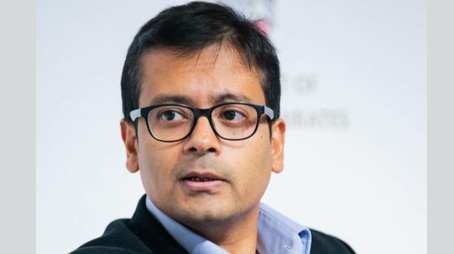‘Bangladesh Single Window’ to be effective within March: Lutfey Siddiqi


DHAKA, Jan 18, 2025 (BSS) – Professor Lutfey Siddiqi, Special Envoy on International Affairs to the Chief Adviser, today said the ‘Bangladesh Single Window’ will be effective within the month of March to ease the import and export processes for businesses.
“Seven out of 19 certificates, licenses, and permits (CLP) issuing organisations are included in this phase. We will switch off the seven organisations’ manual system on January 31, 2025. Manual CLP submissions will no longer be accepted for seven government agencies after January 31,” he said.
The special envoy said this while speaking as the guest of honour at the second session on ‘Economic Reforms and Institutions’ at the symposium on ‘White Paper and Thereafter Economic Management, Reforms and National Budget’ at the Bangabandhu International Conference Center (BICC) in the city.
The seven organisations are the Directorate General of Drug Administration (DGDA), the Export Promotion Bureau (EPB), the Department of Explosives (DoEX), the Bangladesh National Authority for Chemical Weapons Convention (BNACWC), the Bangladesh Economic Zones Authority (BEZA), the Bangladesh Export Processing Zones Authority (BEPZA), and the Department of Environment (DoE).
Lutfey Siddiqi said the remaining 12 agencies will be integrated into the window within February.
He, however, said importers and exporters can register on the platform using their business identification number (BIN) and submit all necessary documents digitally.
Using the system, he said, an importer or exporter can obtain all the certificates, licences and permits and submit the necessary information on a single online platform for clearance of goods.
Dr Debapriya Bhattacharya, Chair of the ‘White Paper 2024’, Distinguished Fellow, Centre for Policy Dialogue (CPD) and Convenor, Citizen’s Platform for SDGs, Bangladesh, moderated the session.
White paper authors Dr M Tamim, Vice Chancellor, Independent University Bangladesh (IUB) and Professor, Bangladesh University of Engineering and Technology (BUET); Dr Tasneem Arefa Siddiqui, Professor, Department of Political Science, University of Dhaka and Founding Chair, Refugee and Migratory Movements Research Unit (RMMRU); Professor Mustafizur Rahman, Distinguished Fellow, Centre for Policy Dialogue (CPD) and Dr Selim Raihan, Professor, Department of Economics, University of Dhaka and Executive Director, South Asian Network on Economic Modeling (SANEM) made presentations on the white paper.
Professor Rounaq Jahan, Distinguished Fellow, CPD; Professor Anu Muhammad, formerly with Jahangirnagar University and Member-Secretary, National Committee to Protect Oil, Gas, Mineral Resources, Power and Ports; Dr Michal Krejza, Head of Development Cooperation, Delegation of the European Union to Bangladesh; Syud Amer Ahmed, Lead Economist and Program Leader, Human Development The World Bank, Bangladesh and Barrister Shameem Haider Patwary, Presidum Member and Additional Secretary General of Jatiyo Party delivered remarks as distinguished commentators.
Mustafizur Rahman said the money laundered was estimated to be to the tune of about $16.0 billion per annum over the period between 2009 and 2023.
The illicit outflows were transferred and concealed in multi-layered forms- invested in shell companies in tax havens, purchasing real estate overseas, deposits in bank accounts abroad, he added.
He said, “While several institutions and steps were put in place to deal with illicit outflows, these remained mostly non-functional due to political pressure, deliberate interventions by powerful vested interests, and also lack of initiative on the part of concerned institutions.”
Mustafizur Rahman, however, urged the government to take budgetary provisions to finance undertaking activities to bring back stolen assets by filing court cases, undertaking forensic investigation, and hiring legal experts and globally reputed firms specialising in asset recovery.
He suggested allocating adequate resources to strengthen institutional capacities of organisations that deal with illicit financial outflows- BFIU, NBR, Task Force on Stolen Asset Recovery, Transfer Pricing Cell- to equip those with adequate human resources and build technical capacity.
Selim Raihan laid emphasis on budgetary allocations for the proper implementation of the Commissions’ and Task Forces’ recommendations.
He called for budgetary provisions for enhancing capacity in the National Board of Revenue (NBR) with respect to digitalization, enhancement of data analytics, and increase in field operations.
Tasneem Arefa Siddiqui said that in Asia, Bangladeshi migrants face the highest migration costs, paying 4 to 5 times more than Nepali workers.
It may take a Bangladeshi migrant 17 months to recover these costs, she added.
She said powerful recruiting agencies, policymakers, and bureaucrats siphoned off $2 billion from migrants between mid-2021 and mid-2024 by creating a recruitment syndicate for Malaysia.
Over the past decade, she said, recruiting agencies and intermediaries have transferred Taka 1.34 trillion via unofficial channels for visa purchases, as outward remittances are not allowed for this purpose.
She mentioned that the Home Ministry has formally requested Malaysian authorities to arrest and extradite the two main individuals behind the syndication for money laundering, extortion, and migrant trafficking.
Tasneem said the allocation for international labour migration, Bangladesh’s highest net foreign exchange-earning sector, stands at a mere 0.08 percent of the national budget for fiscal years 2020-2022 to 2023-2024.
Allocation of 1 per cent of the annual national budget is a minimum requirement for this sector, she added.
She urged the government to declare a ‘Migration Decade’ to develop a comprehensive migration governance system with short, medium and long-term programmes that establishes the rights of male and female migrants and their left behind families covering all phases of migration, before, during and upon return to Bangladesh.
M Tamim said a total of 42 power plants awarded under the Quick Enhancement of Electricity and Energy Supply (Special Provision) Act 2010 which was introduced with the pretext of emergency but used as a tool of corruption and nepotism.
The underhand deal in this regard is estimated at $3 billion, he added.

